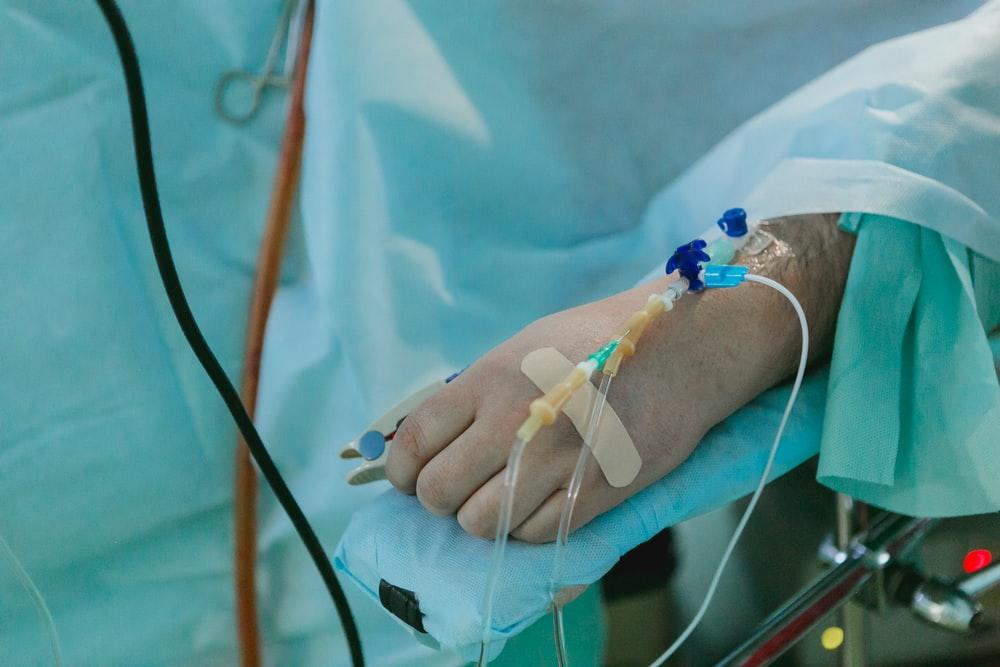Everyone in the modern world is aware of the disease, cancer. Just the name alone is enough to bring an unsettling aura into a room full of people, and the reason is apparent. According to a 2020 report by the World Health Organization, cancer was the leading cause of death in 2020, accounting for a staggering number of 10 million deaths.
Cancer is described as a group of diseases because of the mutations that cells pile up on every division cycle before the onset of tumorigenesis. It is the uncontrolled, abnormal division of cells that the body's immune system cannot detect and stop.
When the cells that form benign (localized) tumors start to break away from the clumped-up cluster, the tumor is said to have metastasized. The metastatic tumor is cancerous and can start to spread to other organs of the body via the bloodstream.
In this article, we’ll talk about the signs and symptoms of colorectal cancer. Colorectal cancer is a combination of two kinds of cancers, colon cancer and rectal cancer, affecting the large intestine. They are collectively referred to as colorectal cancer because they have very similar underlying features.
Colorectal Cancer
It is called colon cancer when the cancer is located inside the colon, which is part of the large intestine that connects the small intestine to the rectum. When it affects the rectum, a storage space for stool that connects the colon to the anus, the cancer is known as rectal cancer. Irrespective of this difference in location, cancer of both these types are generally referred to as colorectal cancers.
Although there are many known risk factors and causes for colorectal cancer, most of them develop from polyps. Polyps are abnormal tissue growths resembling tiny mushroom-like stalks and are usually benign.
Mutations can accumulate in polyps that allow cancer a steady pathway to develop. We will talk more about polyps later on, but for now, it is worth mentioning that polyps can be screened for and removed by doctors. This can mitigate the risk of developing cancer.
Risk Factors
There are various risk factors contributing to cancer growth other than polyps. Unfortunately, some people are genetically predisposed to develop colorectal cancer. Other than having a family history of the disease, people with a genetic syndrome known as familial adenomatous polyposis, or Lynch Syndrome, can develop hereditary non-polyposis colorectal cancer.
Old age also increases the risk of developing different cancer types. Benign anorectal diseases and inflammatory bowel diseases such as Crohn's disease also increase the risk of colorectal cancer.
An important aspect that can be left unnoticed when talking about cancer is a person's lifestyle. Lifestyle can contribute to the development of colon and various other cancer types. Lack of regular physical activity can contribute to weight gain and obesity, disrupting the healthy and fragile environment of the intestines.
A low fiber diet, meaning a diet low in fruits, whole grains, and vegetables, and a high-fat diet can also significantly increase risks associated with cancer. It should go without saying that tobacco use is one of the most prominent contributors to cancer risks since tobacco contains many carcinogenic compounds.
Similarly, alcohol consumption is also an essential risk factor. It can cause cirrhosis of the liver and has been linked with a higher risk of colon and rectum cancer. It is metabolized into acetaldehyde, a known carcinogen that can damage the cellular DNA of colon cells.
Lastly, not all polyps can cause cancer. Cancer is thought to develop mainly from adenomas and sessile serrated polyps (SSP), which are thought to be cancerous. This is the reason that the majority of colorectal cancer types are adenocarcinomas.
Signs and Symptoms
The misfortune of cancer is that it rarely shows any early signs and symptoms. This allows it to remain undetected until the tumor metastasizes and spreads.
Luckily, regular colorectal screenings will not only allow your doctor to remove any polyp formations but also offer them a chance to examine them. This helps pathologists evaluate the presence of precancerous polyps. Regular screening evaluations can help with early cancer detection.
When they do occur, common symptoms include a change in bowel habits. Additionally, symptoms of other conditions, such as diarrhea, constipation, bowel inconsistency, and narrowing of the stool can all be signs of colorectal cancer.
This type of cancer can bleed into the digestive tract. Therefore, blood can be observed in the stool. Similarly, rectal bleeding is also a strong indicator, although it can also mean the presence of hemorrhoids or fissures. Make sure you give your doctor a visit to rule out any serious health concerns.
Prolonged blood loss or cancer spreading to the lungs can cause unexplained anemic reactions, resulting in fatigue. The symptoms will not go away even after a person rests well. These symptoms are dangerous since they indicate that cancer has spread to other organs.
Unexplained weight loss, abdominal or pelvic pain, and vomiting are also common symptoms associated with colorectal cancer. According to the American Cancer Society, sometimes a blood test showing a reduced red blood cell count is one of the first signs of colorectal cancer.
We hope this article helped you understand what colorectal cancer is. As discussed before, many of these symptoms can develop due to various other conditions. Still, if you or anyone you know is experiencing the abovementioned signs and symptoms, it is important to consult your doctor immediately!

